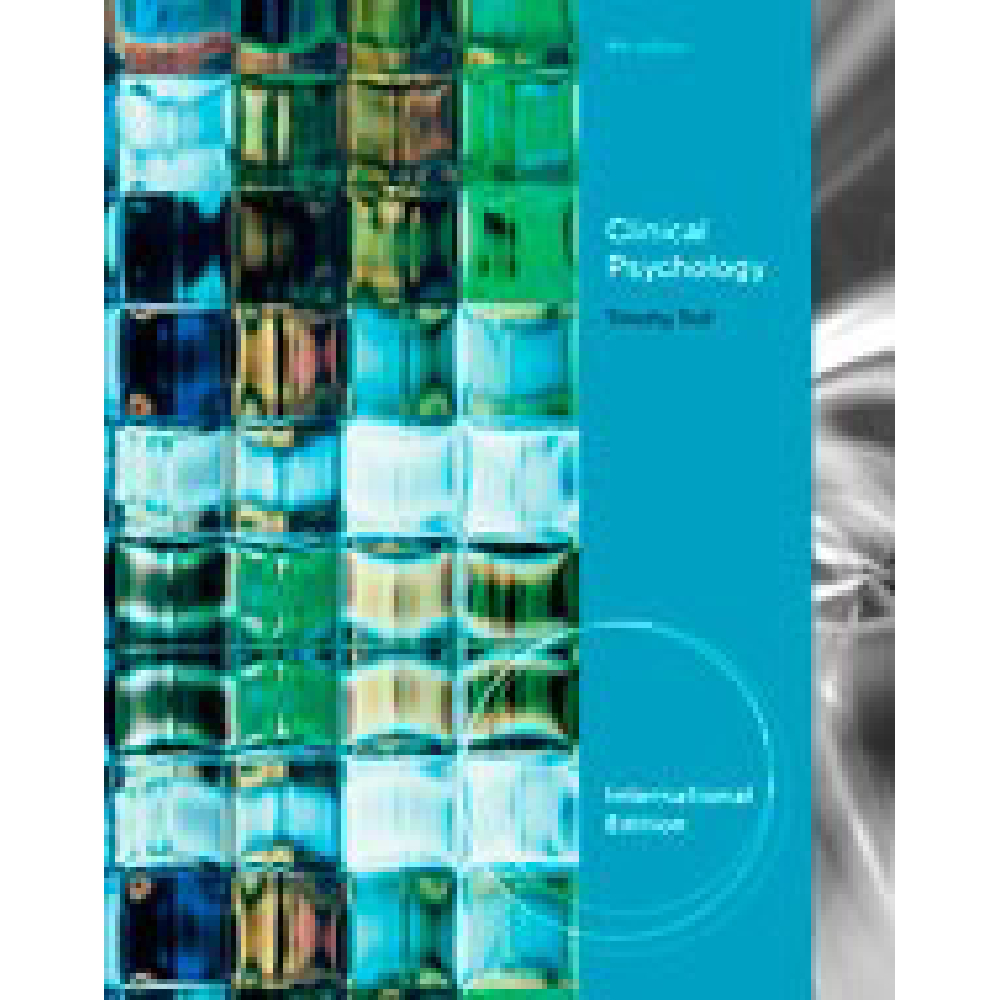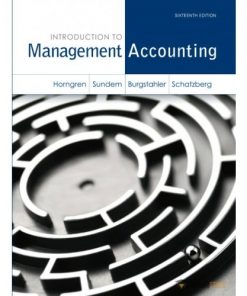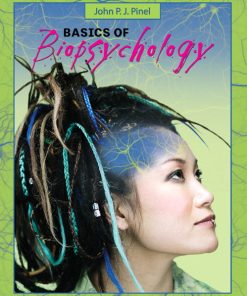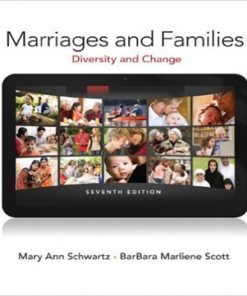Clinical Psychology, International Edition 8th Edition By Timothy Trull – Test Bank
$55.00
Clinical Psychology, International Edition 8th Edition By Timothy Trull – Test Bank
You will receive this product within 24 hours after placing the order
Clinical Psychology, International Edition 8th Edition By Timothy Trull – Test Bank
Chapter 11
Psychological Interventions
MULTIPLE CHOICE
1. Which of the following is true regarding the overall efficacy of psychotherapy?
a. Empirical evidence does not support the overall efficacy of psychotherapy.
b. Empirical evidence supports the overall efficacy of psychotherapy.
c. The overall efficacy of psychotherapy has not been empirically tested.
d. Although psychotherapy is efficacious for some, it is not efficacious for the majority of clients.
ANS: B REF: Does Psychotherapy Help? DIF: Conceptual
MSC: WWW
2. Dr. Hennepin is conducting a study on a new psychotherapy for depression. The depressed clients in his study are diverse, ranging greatly both in the presence of comorbid diagnoses and the severity of their depression; the therapists also are diverse, with different types of mental health training (clinical psychology, social work) and different levels of experience. Dr. Hennepin’s study has a high degree of external validity. What term is used for studies of this nature?
a. a psychotherapy efficacy study
b. a psychotherapy effectiveness study
c. an analog treatment study
d. a double-blind placebo trial
ANS: B REF: Does Psychotherapy Help? DIF: Applied
3. Dr. Pettigrew is conducting a study on a new psychotherapy for depression through the outpatient psychological services clinic at his university. The depressed patients in his study are all moderately depressed, and the therapists are clinical psychology interns and post-doctoral fellows who have received extensive training in the new technique. The clients, who are being paid to take part, are randomly assigned to either the treatment or control group. Overall, the study has been designed to maximize internal validity. What term is used for studies of this nature?
a. a psychotherapy efficacy study
b. a psychotherapy effectiveness study
c. a quasi-experimental treatment study
d. an analog treatment study
ANS: A REF: Does Psychotherapy Help? DIF: Applied
4. The 1995 Consumer Reports study on the benefits of psychotherapy
a. measured the efficacy rather than the effectiveness of psychotherapy.
b. focused exclusively on treatment for alcohol and drug problems.
c. suggested that psychiatrists, psychologists, and social workers were equally effective.
d. all of the above
ANS: C REF: Does Psychotherapy Help? DIF: Conceptual
5. The 1995 Consumer Reports study on the benefits of psychotherapy found that
a. psychotherapy resulted in improvement for about one-third of respondents.
b. longer treatment was related to greater improvement.
c. respondents who received psychotherapy plus medication improved more than those who received psychotherapy alone.
d. none of the above
ANS: B REF: Does Psychotherapy Help? DIF: Conceptual
6. Which of the following terms is currently used to describe interventions or techniques that have produced significant change in clients and patients in controlled trials?
a. empirically validated treatment (EVT)
b. empirically supported treatment (EST)
c. evidence-based practice (EBP)
d. evidence-based treatment (EBT)
ANS: D REF: Evidence-Based Treatments…. DIF: Factual
7. ALL BUT WHICH of the following are categories used to describe the usefulness of a therapeutic approach for reducing mental health symptoms?
a. well-established
b. certainly efficacious
c. probably efficacious
d. experimental
ANS: B REF: Evidence-Based Treatments…. DIF: Factual
8. A few studies have found that Treatment A for anxiety, a manualized treatment, is not only superior to a placebo treatment, but produces outcomes at least as good as an existing well-regarded, widely used treatment for anxiety. These studies have been conducted by different investigators, and the client samples have been specified clearly. On the basis of this information, we would describe Treatment A as
a. well-established.
b. probably efficacious.
c. possibly efficacious.
d. empirically verified.
ANS: A REF: Evidence-Based Treatments…. DIF: Applied
9. Two separate research groups have conducted studies investigating Treatment B for anxiety, and each has found that the treatment group experienced more improvement than a waitlist control group. On the basis of this information alone, we would describe Treatment B as
a. experimental.
b. possibly efficacious.
c. probably efficacious.
d. certainly efficacious.
ANS: C REF: Evidence-Based Treatments…. DIF: Applied
10. A 2006 meta-analysis by Weisz, Jensen-Doss, and Hawley (2006) on the effects of psychotherapy administered to youth of various backgrounds, symptom types, and symptom severity, found that
a. evidence-based treatment produced better outcomes both at the end of treatment and also at follow-up.
b. evidence-based treatment produced better outcomes at the end of treatment, but not at follow-up.
c. evidence-based treatment produced outcomes similar to treatment as usual at the end of treatment, but better outcomes at follow-up.
d. evidence-based treatment produced outcomes similar to treatment as usual both at the end of treatment and also at follow-up.
ANS: A REF: Evidence-Based Treatments…. DIF: Factual











Reviews
There are no reviews yet.